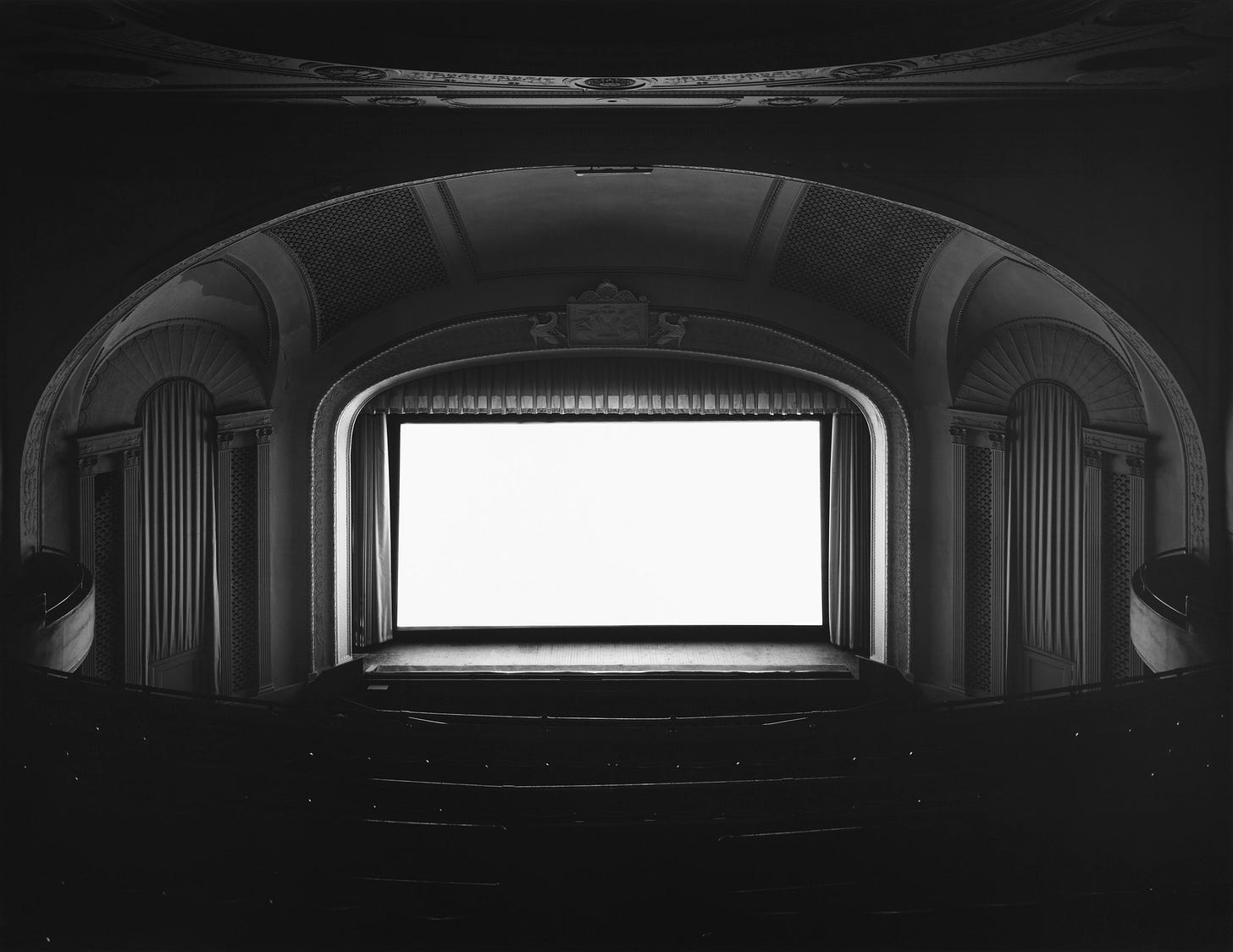Originally written in January of 2021, this essay has been lightly revised as part of an ongoing effort to revisit and refine my thinking.
The lights go down. The voices cease. The crunching gets more pronounced. These are the familiar rhythms of the movie theater, a place the first half of this decade has not treated kindly — from their slumber during pandemic lockdowns to their scars from streaming’s rise. This has led many to question the future of the cinema. While its long-term prospects may seem trivial for those outside the industry, in fact, its survival may be vital to a prosperous future for our species.
I love going to the movies. Throughout my life, I probably average seeing a film in the theater at least twice a month, even if what was playing was something I only had a mild interest in seeing. My father is often my companion, but more frequently, I go alone. Despite regularly spending hours staring at screens alone, a societal stigma still lingers around going to the cinema in solitude. Why? Is it fear of a look from the ticket scanner? Is it the fact that you have to sit in uncomfortable silence during the coming attractions, with no one to confide in? Or is there something deeper at play? The irony is that the cinema is the best place to be by yourself since you can’t talk during the main event. And yet, although you may be alone in one sense, in many ways, you are one with the crowd. There are moments in the theater that bring a room of strangers together: laughter, tears, cheers, gasps.
Let’s contextualize this experience with its potential antithesis, social media. Unlike movie theaters, where you must passively surrender to a story and suspend disbelief, social media gives you the ability to control the content you see at the tap of your finger, chasing one dopamine hit after another. I know, I know, the Algorithm. Let’s put that aside for the moment. Yes, it can suck you into a vortex, but it does not force your hand in the way a film’s narrative does. With Facebook now over twenty years old, we have a societal understanding that social media isn’t a utopia of connection, but a media channel fraught with complex cultural and psychological landmines.
During these polarizing times, it seems we’ve forgotten the fellowship of humanity. We need more sonder. Coined by John Koenig in The Dictionary of Obscure Sorrows, it means:
“n. the realization that each random passerby is living a life as vivid and complex as your own—populated with their own ambitions, friends, routines, worries and inherited craziness—an epic story that continues invisibly around you like an anthill sprawling deep underground, with elaborate passageways to thousands of other lives that you'll never know existed, in which you might appear only once, as an extra sipping coffee in the background, as a blur of traffic passing on the highway, as a lighted window at dusk.”
In the cinema, you can lose yourself in the sense of sonder, empathy in the strangers around you. It's a place to reclaim our declining attention spans — focusing on one thing, rather than everything.1 In a world that is losing a bit of its soul, movie theaters can once again be a sacred place of healing from social media and the fragmentation it's helped fuel. It can actively cultivate empathy and reconnect us with strangers. The cinema’s decline in our lives has awakened us to its moral necessity. A brighter future for our species is one where we all spend more time in this temple, this ritualistic place that’s a paradox of solitude and shared humanity, fused together during one moment in time, imbued with the power of the human imagination.
Because we need that, all of us,
that indescribable feeling we get when the lights begin to dim.
And we go somewhere we've never been before;
not just entertained, but somehow reborn.
Together.Nicole Kidman for AMC
Today, I find it harder and harder to watch a film at home in one sitting, the siren song of social media ever calling. The cinema acts as an antidote to this condition.




